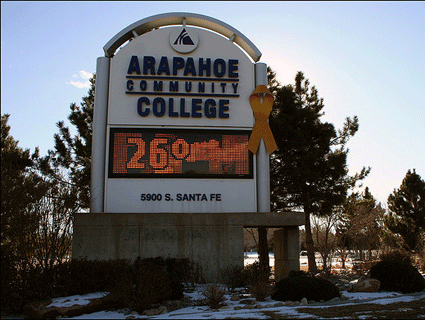
<a href="http://www.flickr.com/photos/denverjeffrey/3123173445/sizes/z/in/photostream/">Jeffrey Beall</a>Flickr
On the blog of the respected Chronicle of Higher Education, Richard Vedder, a researcher at the conservative American Enterprise Institute, recently made a strikingly counterintuitive argument against expanding access to college. Using a regression analysis of 2000 census data, he found that states with higher college graduation rates had worse income inequality. He also found that the opposite was true of those states in the 1970s, when the nation’s college graduation rate was much lower on average but wages were more equal.
What’s going on here? “I suspect the law of diminishing returns is at work,” Vedder writes. “When college attendance/graduation is relatively rare, expanding it does bring in a number of able students who graduate and become productive members of the labor force.” But when the number of graduates outstrips the number of available high-paying jobs, “the incremental graduates do not fare as well economically.”
Vedder is no doubt onto something here. His findings illustrate why we can’t save the American middle class by investing in education alone; we’ll also have to figure out how to revive unions, fix tax and trade policy, and make the kinds of investments in technology and infrastructure that put Americans back to work.
That said, Vedder’s findings are no cause to give up on publicly funded higher education. The five states with the highest college graduation rates all rank above average for median income. So college graduates aren’t doing worse than non-graduates per se. In economically stratified (and highly educated) places like New York, Connecticut, and Silicon Valley, income inequality is to a large degree a gap between the affluent and the spectacularly affluent.
More important, Vedder fails to account for how inequality is widening between colleges themselves. Between 1999 and 2009, private research universities increased their per-student spending by about $7,500, to almost $36,000. Meanwhile, spending on the average public community college student stayed nearly flat, at slightly more than $10,000 per student. It should come as no surprise then that graduates of prestige schools continue to outpace other collegians.
As a conservative, Vedder wants to see schools tighten their academic standards and teach people the kinds of skills that they need to get jobs. Those are fine ideas. But we also need to stop eviscerating the budgets of public universities and colleges even as they expand enrollment. You don’t have to be a Harvard grad to understand that you get what you pay for.










